Today Justice Sijad Hussian Shah rendered a verdict in the case of Anjali Meghwar, who was abducted and forcefully married in October 2014. The 12-year old girl has been handed over to her abductor, whom she was forced to marry within a matter of hours of her abduction. During the court hearing, the obviously distressed girl gave a hopeless nod of the head when asked by the judge whether she wanted to stay with the man she was forced to marry to in October.
During Anjali’s first appearance before the judge on November 21st, the judge officially recognized Anjali as a minor under Pakistani law. A medical examination was performed on the judge’s orders that proved Anjali’s status as a minor, being 13 and a half years old. According to Pakistani law, as Anjali is a minor she is allowed to return home to her family, instead of staying with her abductor. However, due to safety concerns over the highly intensified religious tensions in the community, the girl was sent to a shelter home until the court hearing on November 24th, 2014. Throughout the court process, Anjali’s family was continuously threatened, forcing them to move to undisclosed locations.
While in the shelter home, Anjali was reportedly subjected to threats. She was put under pressure to lie about her forced conversion and marriage. Anjali’s abductor, and even the staff of the shelter home she was staying in, pressured her to state publicly that she converted and married of her own free will. The barrage of intimidation proved too much for Anjali. Anjali eventually gave in to the threats and lied about her age and being willingly married and converted during her last court hearing.
In the courtroom, the Meghwar family lawyer presented the newly presiding judge with the previously admitted medical examination report that stated that Anjali was a minor. Justice Sijad Hussian Shah, however, refused to look at the document (produced under previous court order) and based his decision on Sharia law, which recognizes girls as adults upon reaching puberty, which may be as young as 12 or 13. The judge’s decision to consider Anjali’s reluctant nod in agreement to go back to her new husband and abductor is therefore highly questionable.
The Bigger Picture
The decision of the judge was not unexpected, given the history of previous verdicts in similar cases in the country. Pakistani realities are harsh and hard to understand for many outsiders: underage girls are often abducted, converted and forcefully married. The purposes of such abduction vary from bonded labour to serving as commodities in the sex industry. However, one thing is clear: there is rarely a positive outcome for the girls whose childhoods are stolen by a failing legal system. The act of conversion and marriages often serves as nothing more than a way to detach the girls from their parents, alienate them from their communities, and break down any communication they might have with their families. The case of Anjali Meghwar is no exception.
Given the varying contributing factors and numerous attempts to disclose the threats made to Anjali and her family, the judge’s ruling presents a puzzle. Why did the judge choose to apply Sharia law instead of Pakistani law? According to Pakistani law, Anjali could not make a decision either about conversion or about marriage without her parents’ consent, as she is a minor. How can the silent acquiescence of an underage girl, who has been threatened repeatedly for the duration of 3 months, be taken as anything more than the result of psychological abuse? These questions remain unanswered as yet another girl’s life is ruined as she leaves the courtroom with a newly acquired husband, who may be about to sell her as a highly priced commodity on the sex market.
The current court decision is a testament to 3 sad truths: 1) certain shelter homes provide anything but shelter for the girls from minority groups; 2) access to justice for minority groups, especially vulnerable girls like Anjali, is significantly restricted, if not absent, in Pakistan, and 3) judges are unwilling and/or unable to take a fair decision given the religious tensions similar cases evoke from religiously mixed communities.
Anjali Meghwar, a 12-year old child, is not the only victim in this case. Her family are also victims of the distorted legal system, forcing minority communities in Pakistan to lose any hope of just treatment, unless Pakistan starts properly implementing its legislation on equal treatment and Pakistani society begins to accept its minority communities for what they are: equal citizens of their country. During the high level consultative meeting at his house in December 2014, Pakistani Prime Minister, Nawaz Sharif, proclaimed that forced marriage of young girls from minority communities should and will be made a punishable offence. Furthermore, Sharif labeled such actions as “religious persecution and “unacceptable”. Minority groups, not only Anjali Meghwar, are still waiting for these words to be put into action.
Source : GHRD

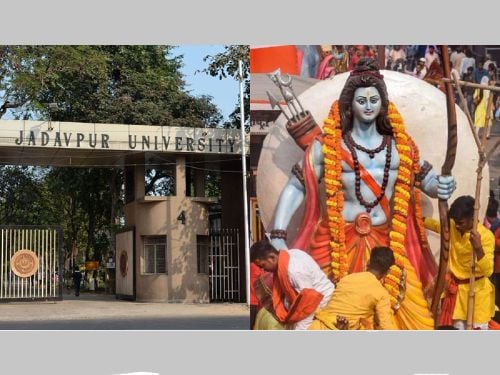 Jadavpur Univ revokes permission to celebrate Ram Navami on campus after granting it
Jadavpur Univ revokes permission to celebrate Ram Navami on campus after granting it Andhra Pradesh: Farooq kills mentally challenged Hindu man for insurance money
Andhra Pradesh: Farooq kills mentally challenged Hindu man for insurance money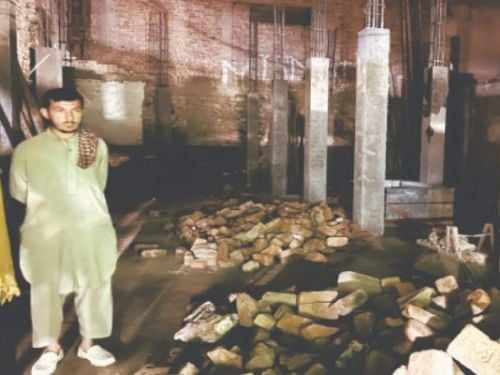 Pakistan: Ancient Hindu temple in Khyber Pakhtunkhwa demolished for commercial complex
Pakistan: Ancient Hindu temple in Khyber Pakhtunkhwa demolished for commercial complex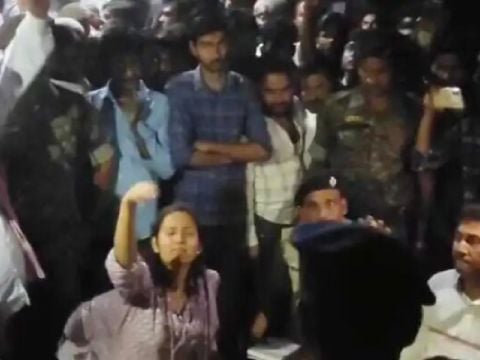 Bihar: Goddess Bhagavati Temple in Araria vandalised and deities damaged
Bihar: Goddess Bhagavati Temple in Araria vandalised and deities damaged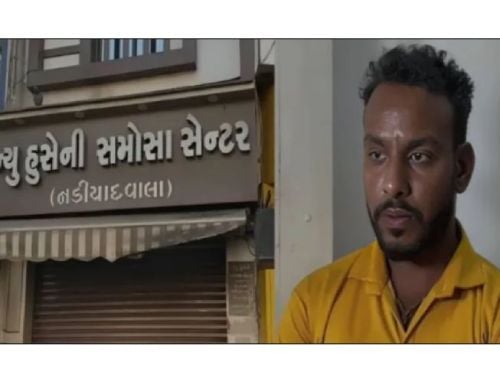 Vadodara: Beef supplier Imran Qureshi arrested in beef-stuffed samosa case
Vadodara: Beef supplier Imran Qureshi arrested in beef-stuffed samosa case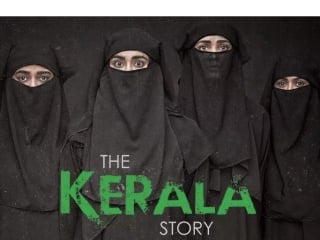 After Idukki diocese, Syro Malabar Catholic Church’s Thamarassery diocese screens ‘The Kerala Story’
After Idukki diocese, Syro Malabar Catholic Church’s Thamarassery diocese screens ‘The Kerala Story’